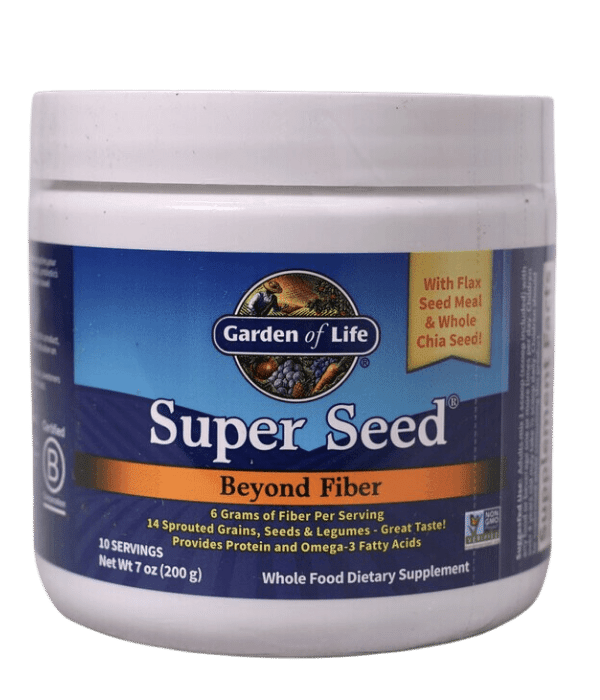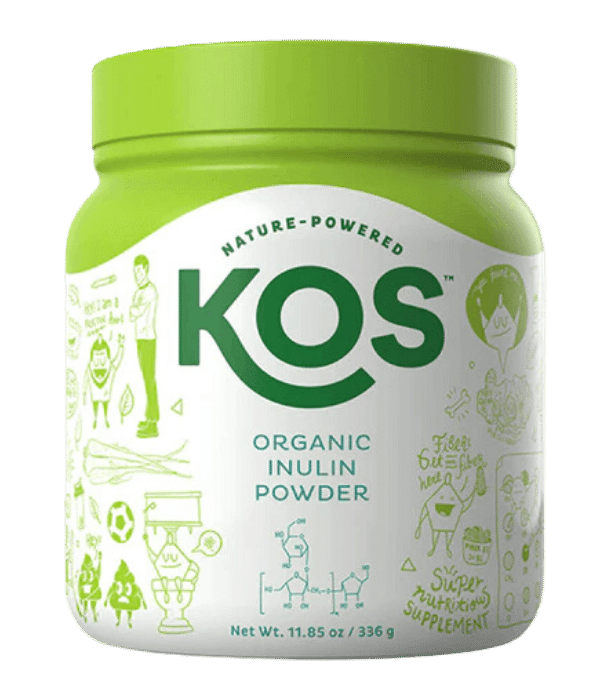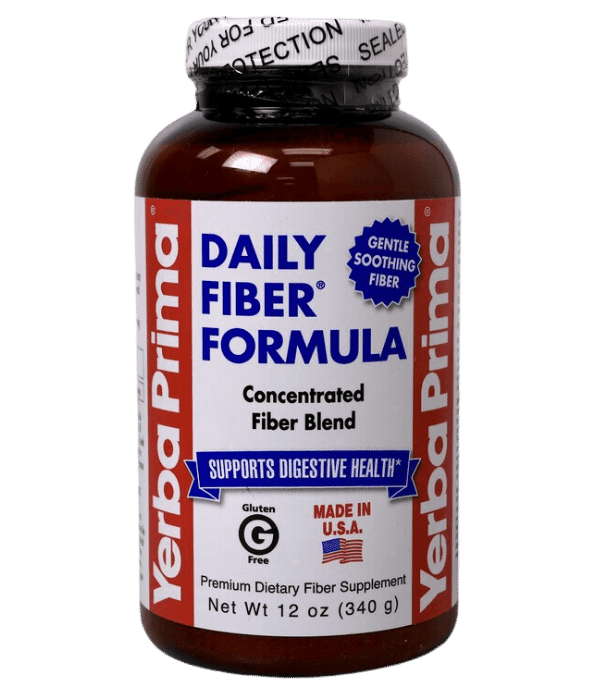Try our favorite, clean protein powder: See our top pick →
Try our favorite, clean protein powder: See our top pick →
This post contains links through which we may earn a small commission should you make a purchase from a brand. This in no way affects our ability to objectively critique the products and brands we review.
Evidence Based Research To fulfill our commitment to bringing our audience accurate and insightful content, our expert writers and medical reviewers rely on carefully curated research.
Read Our Editorial Policy
The bad news? The prevalence of cheap, processed foods has struck a blow to the average person’s fiber intake.
The good news? You don’t need to gnaw through plant stalks like a neanderthal to get all the fiber you need, thanks to the best fiber supplements on the market today.
Better yet, some fiber supplements are moving in the direction of Garden of Life Super Seed—our pick for best overall—by incorporating high-quality probiotics, omega-3 sources, and more to level-up the health benefits. Not to mention the age-old benefits of losing weight, keeping bowel movements regular, and so on.
In this list of the five best fiber supplements, we’ll show you how different types of fiber affect the body differently, and how to tell high-quality products apart from the imitators.
Best Overall | Best Value | Best Fiber | |
|---|---|---|---|
| Product | Garden of Life | KOS Organic | Yerba Prima |
| Grams Per Serving | 6 g | 3 g | 5.2 g |
| Price† | $0.23/gram ($13.99) Shop Now | $0.06/gram ($21.59) Shop Now | $0.06/gram ($15.88) Shop Now |
Best for: Those who want a much more nutritionally rounded fiber supplement and/or anyone who prefers mixing powder to capsules.
It’s not a footnote by any means, but the fiber content certainly isn’t the only focus of Garden of Life Super Seed, which also contains organic cinnamon, a probiotic blend featuring 8 different cultures, and more.
Featuring fiber sourced from a host of nutritionally dense foods (6g/serving total) that contribute also to the protein (also 6g/serving) and omega-3 content (1.1g of ALA per serving), this supplement is optimized for promoting weight loss, relieving gas and bloating, and much more.
Here are a few of the ingredients distributed between the “perfect fiber blend” and the “Poten-Zyme fermented whole fiber blend” featured in Super Seed:
Garden of Life claims this powdered fiber supplement is made to optimize the gut flora balance, gastrointestinal function (aka, “staying regular”), and several other health benefits associated with protein, fiber, omega-3s, etc.
Having closely reviewed the ingredients—also considering the importance of what isn’t there—we agree that Super Seed makes a strong bid for the best fiber supplement around.
But man, could you squeeze more than ten servings in the container, Garden of Life?
Best for: Anyone who wants an affordable prebiotic fiber (powder) that can promote a healthy gut, improve eating habits, and more.
The cool thing about inulin in general is that—as one of the prebiotic fibers—it can “feed” and/or repair the bacteria in your gut, which in itself comes with a huge range of potential digestive health benefits and others (immunity, mood, and more).
This prebiotic action is layered on top of the usual benefits of soluble fiber, which include the potential to lower blood cholesterol, curb blood glucose levels, and leave you feeling fuller for longer so you’re less likely to overeat.
KOS Organic Inulin Powder is made with the one ingredient its name describes, and though it doesn’t contain any additional sources of fiber, it’s an excellent value considering it’s already a soluble fiber and prebiotic in one. This is why we consider it one of the best daily fiber supplements for folks who just want to hit their RDA consistently.
We recommend KOS Organic Inulin Powder to anyone who wants the full range of soluble fiber benefits with some extra kick to promote a healthy gut.
Best for: Anyone who wants a nutritionally well-rounded source of both soluble and insoluble fiber (powder) that kicks in a few other nutrients.
Not to be confused with yerba mate, the highly favored South American tea, Yerba Prima is an Oregon-based wellness brand (originally CA) that has been pioneering and refining high-quality fiber supplements, herbal products, and more since the 80s.
Yerba Prima’s Daily Fiber Formula features a concentrated fiber blend containing five naturally sourced forms of fiber, including:
The soluble/insoluble fiber split on a per-serving basis is 3.5 g and 1.7 g, respectively, enough to promote the benefits of each type, assuming you pick up the slack with the rest of your diet.
Considering this blend constitutes the entire ingredient list, we have no complaints regarding sweeteners, preservatives, and so forth, but as always, organic ingredients are better.
Overall, the high density and variety of naturally derived sources of fiber, the lack of additives, and the excellent value (tied for cheapest on our list) land Yerba Prima Daily Fiber Formula the spot for best fiber supplement in fiber powder form.
Best for: Anyone looking for the benefits of dietary fiber with a special emphasis on managing constipation.
Psyllium husk has been shown by findings like this University of Helsinki study to be highly effective for relieving constipation.
Keeping the details as discreet as possible, psyllium is very good at trapping and transporting water from your intestine to your waste, helping to “keep things moving,” as it were.
This benefit works in tandem with the cholesterol-lowering effects associated with most sources of dietary fiber.
As for NOW Psyllium Husk Caps, our verdict is fairly simple: it’s organic and super clean, but could be priced a bit more competitively.
That said, we’ll give them credit for the potency of psyllium over other sources of fiber (stretching the 1.1 g per serving farther than you think).
If your main reason for taking fiber is to keep your digestive system moving along, NOW Psyllium Husk is definitely our top pick.
Best for: Fiber content aside, fenugreek has been used to aid in breastmilk production, menstrual cramps, diabetes management, and more.
A form of soluble fiber called galactomannan and a class of plant-born compounds called saponins found within fenugreek are responsible for the benefits listed above and more.
This review of 46 randomized clinical trials spanning 2685 patients concluded that, out of the 16 types of fiber tested throughout the trials, galactomannans were the most effective at lowering HbA1c and fasting blood glucose levels.
Saponins (from the Greek “sapouni,” or soap), have been demonstrated to lower blood lipids, cancer risk, and again, blood glucose levels.
As for how Solaray (a subsidiary of Better Being) is bringing the benefits of this ancient seed to their customers, their Fenugreek Seed supplement contains two ingredients: 1,240mg of fenugreek per serving and a vegetable cellulose capsule.
Because fenugreek is about 45% fiber, this equals roughly 0.6 grams of fiber per serving.
We’d like to see a bit more per serving, but the issue is partially balanced out by the higher potency of galactomannan in the glucose management department.
It’s not only valuable for diabetics, but if you’re looking for one of the best fiber supplements for women as well, third-party-tested Solaray Fenugreek Seed is our top recommendation.
Each type and/or source of fiber may be slightly different in its benefits and applications, so the best form for you depends on your goals.
Galactomannan from fenugreek is superior for regulating blood glucose, insoluble fiber in general is better for constipation relief, and so on.
Remember, a supplement is only meant to fill in a deficit. Make sure you’re getting the majority of your fiber from fruit, vegetables, grains, etc.
This depends on the product.
Powdered supplements sometimes contain more additives than capsules, which is one reason why we like KOS Organic Inulin Powder (just the one ingredient).
However, especially if you’re not working with the best fiber pills, it often takes around 3 or 4 capsules to equal one tablespoon or so of fiber powder.
Preference, the product itself, and the quantity that you’re taking are all key factors in determining whether you will have a better experience with fiber powder or pills.
As long as you’re adhering to an age- and gender-appropriate RDA, using a trustworthy product, and sourcing the majority of your fiber from your regular diet, there is no evidence that taking fiber pills every day (especially if you’re taking one of the best fiber pills on the market) is unsafe.
Talking with your physician, dietician, or related care provider is a reliable way to determine whether or not your fiber intake needs to be supplemented. Tracking your fiber intake and knowing your RDA is another way to gauge how close you are to optimal fiber intake.
Symptoms to watch out for include constipation, bloating, feeling hungry soon after you’ve eaten, gaining weight, and frequent nausea, to name a few. In more severe/chronic cases, heart disease, cancer, and other more serious issues can develop.
Finally, it’s important to know that quickly and dramatically increasing your fiber intake can cause bloating, nausea, and some other symptoms as well, so if your deficiency is severe, you may need to work up to the ideal amount.
Soluble and insoluble fiber have distinct, but at-times overlapping benefits: insoluble fiber is more effective at relieving constipation, while soluble has been linked to cholesterol and blood sugar reduction, among other benefits.
Soluble or insoluble, the source of the fiber can affect the nutritional content of the supplement as well as its effectiveness at supporting certain benefits.
As always, make sure your product is made with clean ingredients, reliably sourced, and ideally, third-party tested for purity.
Subscribe now and never miss anything about the topics important to you and your health.